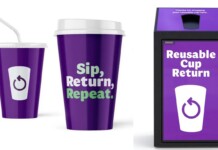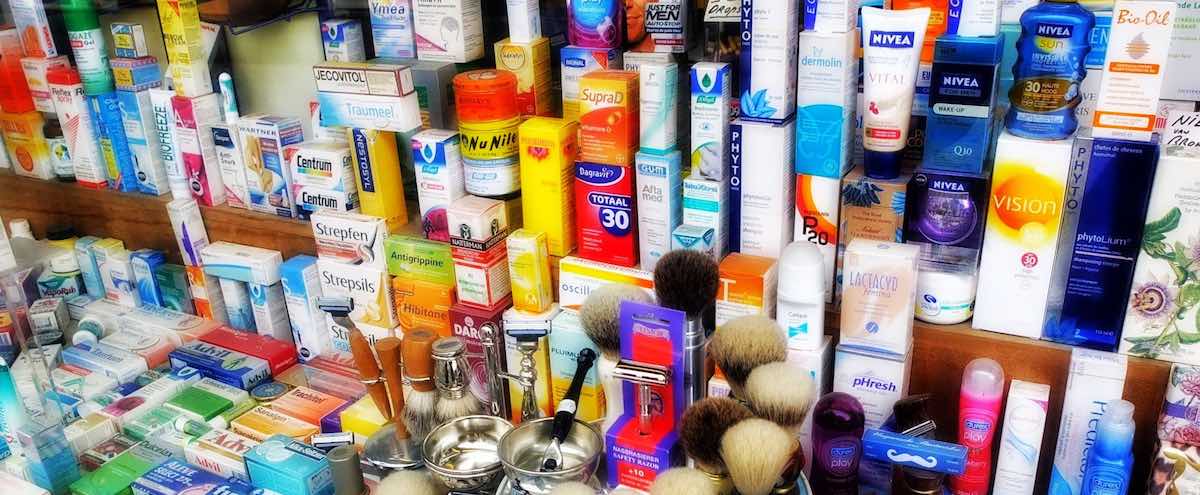Currently, cosmetic manufacturers have no legal obligation in the U.S. to report health problems from their products, many of which contain known toxic ingredients—and they don’t need to prove the products’ safety before they are sold in stores.
Government regulators have never assessed the safety of any products on store shelves and, as a result, American consumers are ingesting potentially harmful ingredients through their skin without knowing it — ingredients like Propylparaben, Isobutane, and phthalates in perfumes and lotions, which contain hormone disruptors.
Do you use Pantene or Suave shampoo? Do you know what ingredients are in products you use from Dove, Oil of Olay, Aveeno, Lubriderm or Neutrogena?
Countless products contain concerning and unsafe ingredients, and a coalition of industry giants and Congressional Senators are poised to finally take action.
Last September, a coalition of companies dedicated to safer, more natural, personal care products descended on Washington, D.C. to support a new bipartisan bill, the Personal Care Products Safety Act (S. 1113), introduced by Democratic Senators Dianne Feinstein and Republican Susan Collins which demands more protective laws governing that industry.
Mainstream cosmetics companies including L’Oreal, Revlon, Proctor & Gamble, Johnson & Johnson, Unilever, and Estee Lauder have confirmed support for the bill, which has attracted 15 co-sponsors in Congress.
RELATED: Ban on Plastic Microbeads Finally Launched in the UK
Last month, the eldest Kardashian daughter, Kourtney, traveled to D.C. to push for the reform and tell Congress to “do its job”.
“Even going into a store to buy just about anything…you shouldn’t have to walk around aimlessly asking ‘Is this okay?’ ‘Is this not okay?’ Kardashian said during a briefing with New Jersey Rep. Frank Pallone Jr. “Everybody should have the right to healthy products.”
Unlike in Europe and Canada, U.S. laws that do govern the $62 billion beauty industry in America are eight decades old with no rules requiring disclosure or adequate testing. While nearly 1,400 ingredients are banned from personal care products in Europe, the US has eliminated only 30. The Feinstein-Collins bill would require the FDA to investigate the safety of five cosmetics contaminants yearly, while requiring cosmetics makers to disclose ingredients, report incidents involving harm to health, and give the FDA authority to recall dangerous products.
In a recent study, the levels of potentially hormone-disrupting chemicals in the bodies of teenage girls plunged in just three days after they stopped using certain cosmetic products, shampoos and soaps that contained phthalates and parabens, according to Kim Harley, Ph.D., a researcher with the Center for Environmental Research and Children’s Health at the University of California – Berkeley.
Harley, a reproductive and perinatal epidemiologist, and her team from the Environmental Health Laboratory of the California Department of Public Heath enlisted volunteers, 100 Latina girls between 14 and 18 years old, to start using safer products. They pledged to refrain from using their regular personal care products for three days and instead to rely solely on products free of the suspected endocrine disruptors.
After three days, the teens’ urine tests showed significant decreases in the concentrations of parabens, preservatives widely used in cosmetics, shampoos and skin lotions (down 44%), and phthalates, common industrial plasticizers in nail polish and fragrances (down 27%). Particularly problematic is the fact that you won’t see ‘phthalates’ on the label, because it is hidden by using the word fragrance or parfum, unless the brand specifies it uses no artificial fragrance.
MORE: 5 Common Kitchen Products Are the Recipe for Great Skin and Hair
“Techniques available to consumers, such as choosing personal care products that are labeled to be free of phthalates, parabens, and oxybenzone, can significantly reduce personal exposure to these potentially endocrine-disrupting chemicals,” the study authors wrote. “Our study did not test products for the presence of these chemicals, but simply used techniques available to the average consumer, like reading labels.”
Also be aware that some “watchdog” websites can also be erroneous, according to the Scientific Advisory Board. Some synthetic preservatives are manmade, but still safe. Butylene Glycol, for instance, has been called a skin irritant, but according to the reputable Personal Care Products Council (PCPC), formerly known as the Cosmetic, Toiletry, and Fragrance Association, it is a non-toxic, hypo-allergenic ingredient used in cosmetic and food preparations, with a well documented safety and usage record.
Some cosmetics companies, such as Arbonne, use more plant-based ingredients. They have been driving the safety of their products through independent testing and global governmental standards used by Europe. Their list of “not-allowed” ingredients includes more than 2,000 substances—even more than the 1,400 banned under EU law.
“All Arbonne products must have a 100% pass rate to be introduced to our line,” says the company website, which reports that they test ingredients’ safety through the Cosmetic Ingredient Review (CIR) and the watchdog group PCPC.
Other brands with no parabens or phthalates include Tata Harper, Dr. Hauschka, Aveda, and Acure. (Conversely, Pantene, Suave, Dove, Oil of Olay, Aveeno, Lubriderm, and Neutrogena, all sell some products formulated with those two ingredients.)
EARLIER: FDA Finally Bans Antibacterial Soaps Containing Triclosan and 18 Other Chemicals
The new call to consider more closely the effects of chemicals on consumers also has far-reaching benefits for the environment, similar to recent moves to rid personal care products of microbeads. The endocrine disruptors that are flushed into waterways, have been been suspected by EPA scientists as causing malformed frogs and mutations in fish.
Because your entire family is using a myriad of products every day that may be contain harmful ingredients, it is worth your time—and Congresses—to investigate the safety of the cosmetics industry.
PASS the news to family and friends… (Photo by Jacek.NL – CC)




















